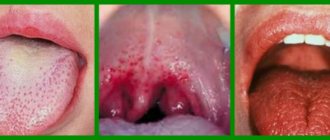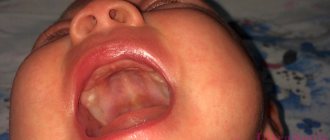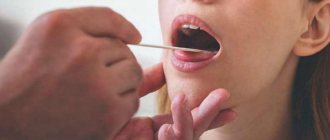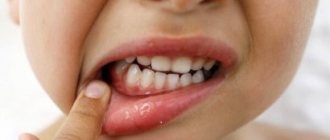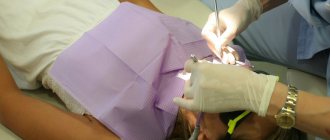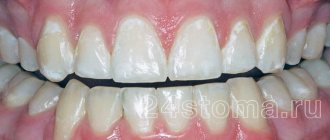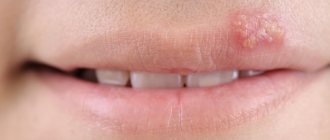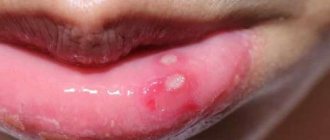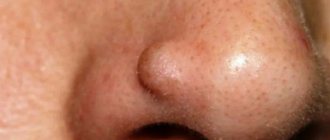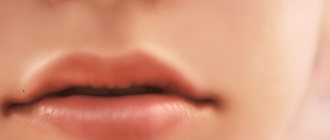The palate is one of the important elements of the oral cavity, thanks to which a person performs speech and chewing functions. However, in the process of life, pathogenic microbes constantly accumulate in the mouth, the negative impact of which can cause the development of inflammatory processes, the formation of edema and numbness. At the same time, patients experiencing irritating discomfort do not always understand the cause of its origin, and do not know how to get rid of palatal itching.
Heaven - what is it?
Before you understand why the palate itches, you need to find out what kind of organ it is. So, the palate is a partition in the upper part of the oral cavity, which, in fact, separates the mouth from the nose from the inside. The purpose of this organ is that, firstly, it prevents germs, food and liquid from entering the nose, trachea, and lungs, and secondly, it helps us pronounce sounds. It consists of two parts. Immediately behind the upper teeth, a hard septum begins, covered with a mucous membrane - you can press on it with your tongue and feel that it really does not allow the tongue to “fall” into the nasal sinuses. The hard septum occupies approximately 2/3 of the area, and immediately behind it begins the soft palate, which is 2 times shorter than the hard palate. It is this that covers the pharynx like a “curtain”, protecting it from food and water getting there. There is a tongue in the center of the soft part.
The palate is the partition at the top of the mouth
Causes of itching on the palate
Why does the roof of your mouth itch during the day or at night? In general, inflammation of the palate accompanied by pain and/or discomfort is called “palatinitis.” The causes of itching and pain can lie in a huge number of factors - from untreated diseases to your favorite soft pillow with natural fillings. Let's look at all the possible reasons below.
Itching due to oral infection
As you know, hundreds of millions of harmful microbes live in the mouth - staphylococci, streptococci, various bacilli, fungi, etc. In a healthy adult or child, local immunity copes with them quite well. But when the body weakens, pathogens “win” and diseases begin. For example, a common reason why the palate itches is stomatitis. Why does the sky itch in this case? With stomatitis, small ulcers are formed on the mucous membranes, inhabited by microbes that secrete toxins. In the absence of treatment, not only the tissue structure suffers, which continues to deteriorate, but also itching occurs - a reaction to local irritation.
The cause of itching may be stomatitis
Injuries of various origins
Another common reason that the palate of the mouth itches is injuries to the mucous membranes. Factors that cause itching are:
- injuries of a mechanical nature: damage to the mucous membranes with a toothbrush, a hard object - the tip of a pencil, a toothpick, a nut shell, a sharp candy, a scratch with a fingernail, abrasions from a denture or wearing a broken denture, an orthodontic plate with a sharp edge. Also, an injury may occur during treatment by a dentist - if the doctor worked carelessly with a bur or hand tool,
- chemical damage: burns from acidic foods (citrus fruits), canned food with vinegar, concentrated juices, whitening pastes and gels, medicines, antiseptic solutions, alcohol,
- thermal origin: extremely cold or hot foods (fruit ice, soup, roast) and drinks (juice, water, tea, coffee), smoking.
Orthodontic structures can injure the palate
Diseases of teeth and gums
Untreated or “hidden” caries, pulpitis, periodontitis, as well as gingivitis, periodontitis, and periodontal disease can also cause the upper palate in the mouth to itch. After all, there are many blood vessels in the oral cavity - infection can spread through them, and nerves connecting all organs. Therefore, the cause of itching of the palate may lie, for example, in a diseased tooth in the upper jaw (less often, in the lower jaw). Here, either microbes penetrate the mucous membranes with the bloodstream and provoke palatinitis, or the pain radiates - spreads along the nerve endings far beyond the diseased tooth.
Read on the topic: what is periodontitis - its symptoms, the danger of the disease, treatment methods.
Gingivitis may be a cause of concern
Diseases of the ENT organs
Why does the palate and ears itch, but the dentist does not find any pathologies in the mouth? It is likely that the cause of discomfort is diseases of the nose, throat or ears - after all, they are also connected with each other and with the oral cavity. What to do in such a situation? You need to visit an otorhinolaryngologist - or, in simple terms, an ENT specialist. It is possible that the cause was chronic otitis (if the inside of the ears hurt or itch), sinusitis, tonsillitis, or an aggravated runny nose. When you have a cold, the palate can itch especially severely, and the itching and soreness in the throat, nose or palate does not stop for several days in a row.
Symptoms may be caused by an ENT disease
Allergic reactions
Another option when the dentist cannot find the reason why the palate itches is an allergy. It can occur due to the following irritants:
- new toothpaste, mouthwash,
- washing powder, fabric conditioner,
- dust mites, flowering plants,
- food allergens, dyes,
- wool, feathers and down of animals,
- decorative cosmetics, face cream,
- medications,
- new dentures, plates for bite correction, aligners (elastic “braces”).
Interesting to know! Discomfort may not be associated with an allergy to prosthetic materials, but with the properties of the materials themselves. So, for example, if dentures are installed in the mouth, incl. crowns, bridges, made of dissimilar metals, then an electrical impulse can occur between them - galvanism.
Diseases in children
Why does the upper palate in a child’s mouth itch? Common causes of such discomfort in children are as follows:
- injury from a sharp object: toys, forks, sharp edges of candy,
- infection: most often develops due to dirty fingers or objects that the baby puts into the mouth. Contact with an infected person - an adult or a child - may also be to blame.
- thrush or candidiasis: candidal stomatitis also refers to infectious diseases, but is included in a separate section - because in 60% of cases it is diagnosed in young children. The mucous membranes, tongue and palate can be covered with a cheesy coating, under which inflamed tissues are hidden - they itch and hurt.
In children, the cause of the tooth may be thrush.
In early school and adolescence, discomfort may be associated with teething and hormonal changes in the body.
Rare causes of itching
Sometimes neither the dentist nor the ENT specialist can determine why the roof of the mouth itches. What does it mean? It is possible that the source of the problem is hidden in other organs and systems of the body. Rare causes of itching may be a symptom of the following pathologies and conditions:
- gastroesophageal reflux: reflux of stomach contents (including acid) back into the esophagus and higher,
- increased stomach acidity,
- neurological diseases,
- scarlet fever,
- chickenpox,
- pregnancy,
- menopause,
- diabetes,
- kidney diseases,
- pathology of the thyroid gland,
- oncology.
Symptoms that may accompany itching
Why the palate in the mouth itches has already been described above. Now let's look at the symptoms that accompany itching. This may be pain, runny nose, cough, sneezing, increased or decreased salivation, sore or itchy throat, discomfort to the nose, ears, or increased body temperature. Let's add here pain in the teeth, bleeding gums, swelling of the mucous membranes in the mouth, rashes or sores covered with plaque. There may also be a sour or metallic taste in the mouth, and the eyes may become watery.
An accompanying symptom may be sneezing, nasal congestion
Determining the diagnosis
A medical examination helps to clarify the source of the discomfort, as well as determine the degree of development of negative processes, if they are present. If the symptoms are not clearly expressed, the problem often turns out to be minor inflammation caused by external factors, but even in this case it is not recommended to avoid visiting the clinic. Even minor symptoms can turn into primary manifestations of serious pathologies.
The characteristic symptoms characteristic of pathologies, the plug manifestation of which is palatal itching, include:
- Systematic and persistent feeling of discomfort, pain and tingling;
- For fungal infections - the formation of white ulcers on the surface of mucous tissues;
- With the development of a sore throat, there is pain and extensive redness of the throat and palate;
- Increased body temperature.
How is diagnostics carried out?
What to do if the roof of your mouth itches? Here you need to carefully remember whether there were any injuries a few days ago - maybe they were scratched with a brush or toothpick? For 2-3 days, it is better to switch to soft foods (neither hot nor cold) - if the discomfort goes away or has disappeared altogether, then it is not necessary to go to the dentist. Have you recently changed your toothpaste? Try using your usual hygiene product for 3-4 days. If nothing helps, then you need to contact a dentist, who will conduct a diagnosis, find the cause of concern and eliminate it, or, if necessary, give a referral to another specialist - a therapist, pediatrician, ENT specialist, neurologist, etc.
During diagnosis, the doctor examines the oral cavity and asks the patient about complaints. If necessary, tests are taken - blood, oral swab to identify the causative agent of infection.
Bruxism
In some cases, itchy gums are caused by bruxism - teeth grinding, which most often occurs during sleep. In addition to discomfort in the gum area, bruxism can damage tooth enamel and negatively affect the health of the jaw joints. In addition, as a result of excessive stress on the teeth, the gums often begin to recede, exposing the neck and roots of the teeth.
Up to contents
The information in this article is for reference only and does not replace professional advice from a doctor. To make a diagnosis and prescribe treatment, consult a qualified specialist.
How does the treatment work?
Treatment depends on the cause of the itchy roof of the mouth. If it is stomatitis, caries or periodontitis, then the treatment is carried out by a general dentist or periodontist. If the problem is with the prosthesis, you need to go to an orthopedic dentist. If the orthodontic appliance is uncomfortable, you should contact an orthodontist. The doctor prescribes various drugs - gels for inflammation and for tissue regeneration (Cholisal, for example), antibiotics for bacterial or fungal stomatitis (Flemoxin, Fluconazole, for example), vitamin complexes.
For allergies, in addition to replacing the prosthesis (if necessary), 2nd generation antihistamines are prescribed - Ripafin, Erius, Claritin, etc. If the cause of itching is ARVI, runny nose or otitis media, then the ENT specialist will prescribe nasal drops or ears - antibiotics and antihistamines can also be prescribed here.
Specialists may prescribe a gel to reduce itching
“When I have acute respiratory infections, my palate is constantly itching. And when your throat hurts, it generally itches a lot. Lozenges seem to help, but not for long. But at least they have some effect. I know from myself that it helps when I drink a lot of liquid. Something warm and not too sweet is best.”
Tatyana, review from the woman.ru forum
What you need to know about prevention
To protect yourself from palatinitis, as well as speed up its treatment, you need to follow a few simple rules. The first is a diet rich in vitamins and minerals, they strengthen the immune system and allow you to lead an active lifestyle. The second is timely treatment of emerging diseases, because delaying a visit to the clinic increases the risk of complications. And lastly, follow all doctor’s instructions regarding medication and lifestyle.
1Iordanishvili A.K. Diseases of the endodont, periodontium and oral mucosa, 2008.
Ways to get rid of the disease
If itching and redness of the mucous membrane of the palate are caused by minor injuries, traditional drug therapy is not required. To save the patient from this type of pathology, it is enough to operate with medicinal herbs:
- Minor injuries of a mechanical or thermal nature are effectively treated by using mouth rinse with decoctions of herbs, calendula and chamomile;
- Swelling and abscesses are treated with oak bark infusions prepared in water baths.
Rinses used for medicinal purposes should be slightly warm so as not to cause additional irritation to the damaged mucous membrane of the upper arch of the mouth.
